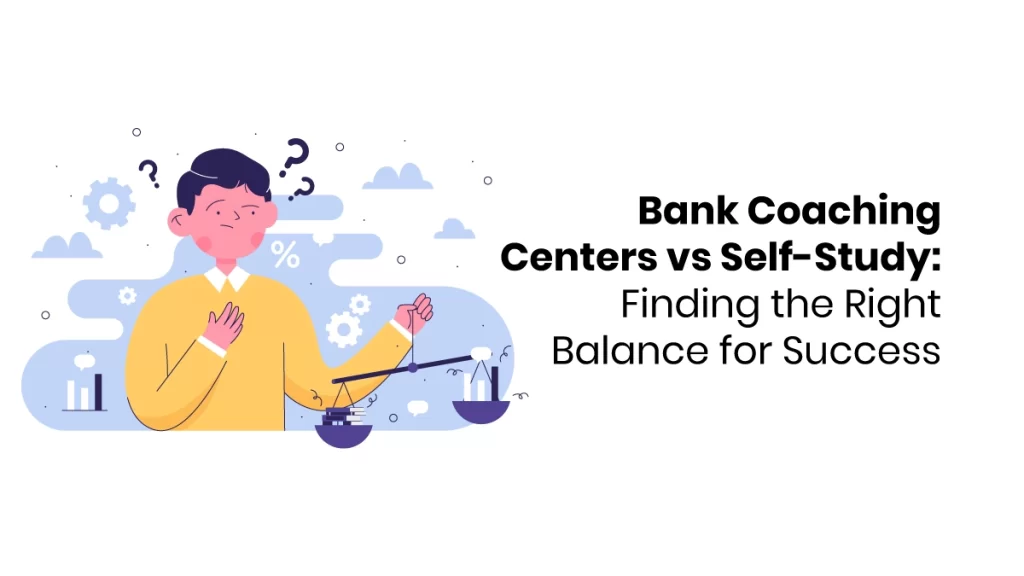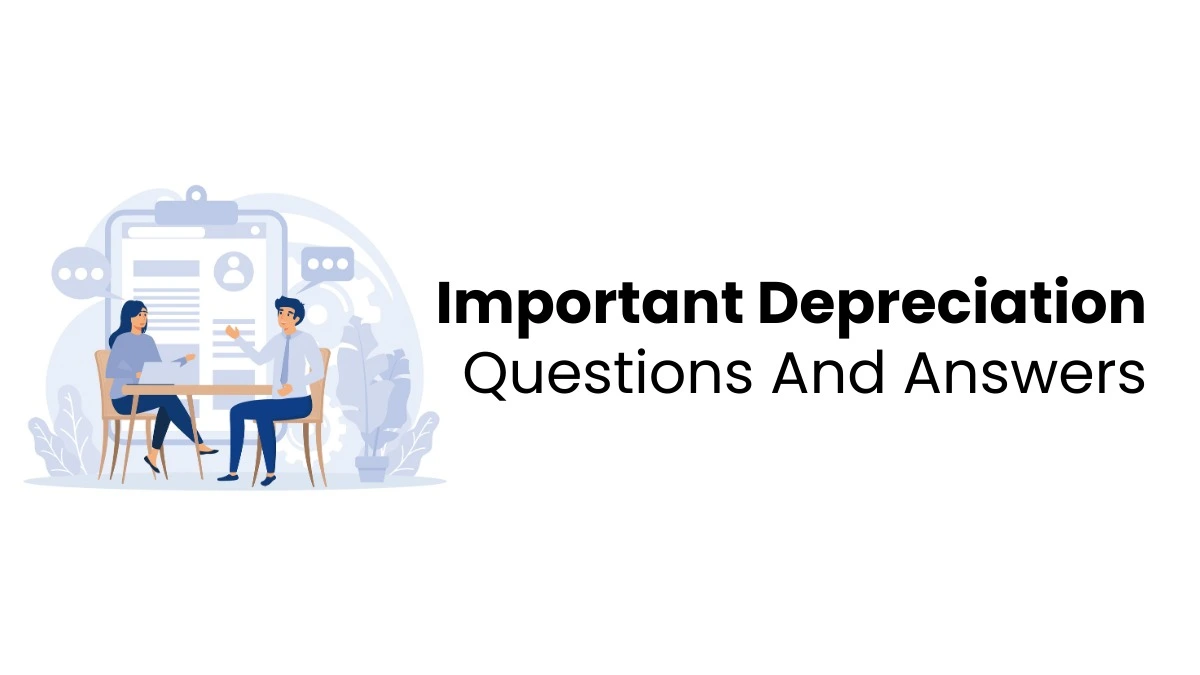When one aspires to pursue a career in banking, a crucial question arises – how does one prepare themselves comprehensively? Is self-study the best way forward, or is it worth giving in to the allure of coaching centers, with their promises of overnight success? The undeniable impact of coaching centers is reflected in the success of thousands of students who have secured selections through their assistance. Regardless of your inherent capabilities, the guidance of bank coaching centers can elevate your performance. However, it’s worth noting that having a coach doesn’t necessarily require attending a coaching class. Let’s delve into the pros and cons of each method to help you make an informed decision.
Advantages of Bank Coaching Centers
1. Optimal Learning Choices
The bank coaching centers offer many learning choices, providing a dynamic way to maximise educational benefits. These courses provide access to advanced study materials and offer the convenience of learning from the comfort of your home. Online coaching is a lifeline for college students and working professionals engaged in offline commitments, ensuring uninterrupted preparation with limitless resources.
2. Well-Structured Virtual Classrooms
Step into the well-organised realm of online classrooms, meticulously designed to guide aspirants through bank exams. These virtual spaces furnish comprehensive details, including syllabus coverage, practice sets, and high-quality test series solutions. With a keen eye on students’ strengths and weaknesses, these platforms adeptly pinpoint errors, offering tailored guidance. Institutions like Finprov, recognized as a leading banking coaching centre, exemplify this organisational excellence, ensuring classes are conducted precisely and adhere to success-oriented instructions.
3. Expert Guidance
Enrolling with the right institute grants you access to invaluable expert advice. Interact with professors who bring real-world experience as seasoned public sector bankers. Their insights illuminate the exam pattern, clearly understanding the requirements to crack the exam. This personalised guidance streamlines your preparation and saves precious time that might otherwise be lost in navigating the complexities alone. Professors with intimate knowledge of the online exam process guide you in the right direction, offering a shortcut to success.
4. Flexibility Beyond Boundaries
One of the prime advantages of classes is their flexible timing, a game-changer for students with diverse schedules. Whether a college student or a working professional, they choose to study hours based on convenience through online mode. This incredibly empowering flexibility allows individuals to balance daytime commitments and dedicate focused nighttime hours to preparation. This adaptability becomes a powerful tool for those constrained by distance or safety concerns. Students can join offline classes based on their preference.
5. Best Training and Assessment Methods
Your chosen coaching center will likely furnish you with meticulously researched study material, a key asset in conquering every exam section. Beyond traditional materials, you can access real-time training methods aligned with current examination trends. Online and offline mock tests and section-wise question banks become indispensable tools for refining your speed and accuracy. The coaching center’s commitment to providing the latest and most relevant training methodologies ensures you stay ahead of the curve and have the skills needed for success.
6. Individualised Support
Some coaching classes go the extra mile by offering individual guidance to students facing challenges in specific exam sections. This personalised attention allows you to address your weaknesses effectively, ensuring a holistic and targeted approach to preparation. The institute becomes a source of collective knowledge and a guiding force tailored to your unique needs.
Advantages of Self-Study
1. Online Courses
The digital era has ushered in a wealth of study materials online, providing a dynamic learning experience platforms like YouTube host a plethora of videos covering a wide array of topics. However, to maximise the benefits, it’s advisable to complement video content with traditional book exercises. Prioritise targeted practice from books to identify specific areas for improvement, and then delve into online videos tailored to those identified needs.
2. Virtual Study Groups
Embrace the power of online study groups, particularly on platforms like Facebook. Joining these groups opens up avenues for resolving queries and doubts effectively. Beyond addressing your immediate concerns, participating in these communities exposes you to common doubts your peers share. This communal knowledge exchange ensures a holistic understanding of the subject matter.
3. Progress Monitoring through Mock Tests
Navigate your exam preparedness journey with the strategic use of mock tests, available abundantly online. Seek a reliable test preparation platform offering high-quality chapter-wise, section-wise, and full-length mock tests. The key lies in choosing a test series that mirrors the exam’s difficulty level. Opt for a balanced difficulty to avoid demotivation – excessively challenging questions may hinder rather than help. These mock tests serve as a compass, guiding you through progress monitoring while enhancing your speed and accuracy.
4. Building a Supportive Network
Develop connections with successful candidates by creating a peer group that provides invaluable insights and advice. Platforms like Quora and Facebook are treasure troves where achievers willingly share their success strategies post-exam. Engaging with these individuals not only provides personalised guidance but also serves as a confidence booster. Recognizing that those who now stand triumphant were once grappling with the same challenges can be a powerful motivator in your journey.
5. Unleashing the Power of Self-Study
Dive into the advantages of self-study, which caters to individual learning styles. Unlike coaching classes with a sizable number of students, where the teacher adheres to an average pace across all topics, self-study empowers you to dictate the speed. Take the reins of your learning journey, grasp challenging chapters slowly, and breeze through familiar ones swiftly. The flexibility of time and location amplifies the benefits of self-study, offering a personalised and adaptive approach to mastering the material.

Bank Coaching Centers vs. Self-Study: Finding the Right Balance
1. Understand Your Unique Learning Preferences
Dive deep into recognizing how you absorb information best. Whether you thrive in a structured environment with external guidance or prefer the autonomy of personalised learning, understanding your unique style lays the foundation for adequate preparation.
2. Crafting a Hybrid Approach
Strive for a balanced model that amalgamates the strengths of coaching centres and self-study. Leverage coaching centres for structured guidance and expert mentorship, seamlessly integrating self-study to customise your preparation to your individual needs.
3. Prioritise Consistency
Irrespective of your chosen approach, maintain a steady study schedule. Adherence to a realistic timetable guarantees ongoing progress and improvement. Consistency fosters discipline and establishes an effective routine conducive to success.
4. Regular Self-Assessment
Engage in periodic self-assessment, a practice applicable even within a coaching centre setting. Identify areas of weakness and allocate dedicated time for focused improvement. Regular evaluation is pivotal for refining and optimising your overall preparation strategy.
5. Cultivate Adaptability and Flexibility
Embrace adaptability in your study plan. Stay open to incorporating new learning methods and adjusting your approach based on an evolving understanding of the exam requirements. A willingness to adapt enhances your readiness for success, ensuring you stay ahead of the curve.
Achieving success in bank exams is a complex decision between choosing coaching centers or self-study. Both methods have unique merits, and the key to succeed is discovering the right balance that aligns with your learning style, preferences, and circumstances. Scoring well in banking exams requires a holistic approach that includes effective study methods, unwavering dedication, and self-awareness. Whether you choose to go for structured guidance from a bank coaching centers or prefer the independence of self-study, it’s essential to be flexible and refine your approach per changing scenarios.
Finprov’s bank coaching program is the perfect choice if you’re looking to excel in bank exams. Our program offers personalised attention and comprehensive support to help you prepare for SBI, IBPS, and RBI exams. We cover various subjects, including quantitative aptitude, reasoning, English, general awareness, and banking-related topics. Our tailored options, such as classroom and online coaching, study materials, test series, mock tests, and doubt-clearing sessions, cater to your diverse preferences and schedules. With our focused and effective program, you can be assured of a clear path to success in the banking sector.










